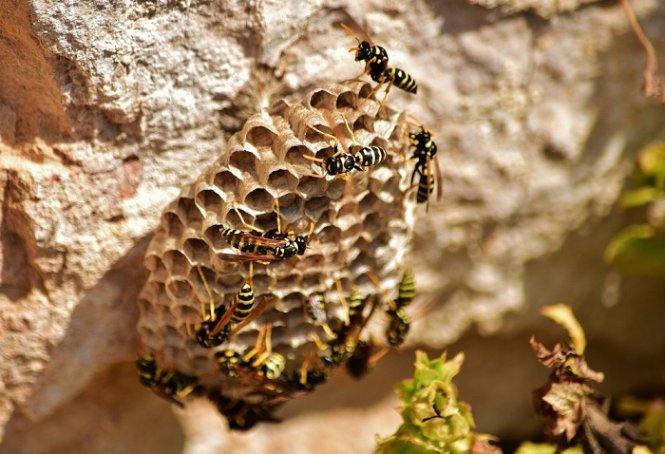Summer is usually a great time of year, the sun is shining and anything seems possible. However, for many people, summer brings a real threat to their health and safety. The problem is wasps. Approximately 10% of the population is allergic to wasp stings.
Wasps are more aggressive than bees, this is possible because they can sting multiple times. Knowing this, and especially if you are likely to have an allergic reaction, you need to be aware of how to spot a wasp nest and what to do when you find one.

Table of Contents
Signs Of A nest
The most obvious sign that wasps are living nearby is when you start seeing a lot of them. They don’t tend to stray too far from the nest. This makes it possible for you to watch the wasps and see where they are coming and going from. It will give you a good idea of where the nest is.
If you are looking for it then pay attention to dark spaces, such as under your eaves, under decking, or even in the corner of a porch.
It should be noted that if the wasps have created a nest in the walls then you may hear faint chewing or scraping sounds. Alongside this, it’s possible to see mud tubes in the ground or chewed pieces of wood. They do this when constructing a nest.
Dealing With A Wasp Nest
The first thing you should do when faced with a wasp nest is back slowly away. Wasps are likely to get aggressive if you get too close to their nest. This can mean dozens of wasps coming toward you and repeatedly stinging you. At best, it will hurt, at worse you can develop a severe allergic reaction.
Once you are far enough away you can turn and walk away and, as soon as you can, call the local pest control. They have the tools and equipment to eliminate the nest.
In most cases, this means destroying the wasps as there is no easy way to relocate their nest. Obviously, if you’re dealing with a bee’s nest then a specialist is likely to take it to a local beekeeper and the bees will be looked after.
That’s not the case with a wasp nest.
Deterrence
It’s important to be aware that wasps don’t generally return to the same site each year. However, if you have favourable conditions then you may attract different wasps every year. There is little you can do about having attractive eaves.
One of the easiest ways to deter wasps is to hang fake nests. They don’t generally like to be too close to each other. Therefore, a fake nest can persuade them to set up a home elsewhere.
Of course, you also need to be vigilant. It’s easy for professionals to take care of the nest when it is small. By keeping an eye on wasps and spotting a potential nest early you can eliminate it before it becomes a problem.




